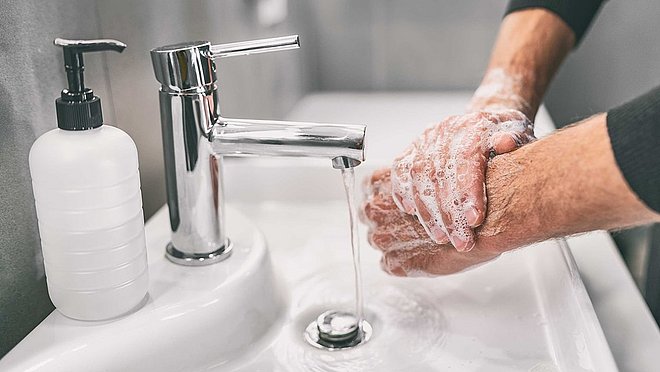Answers to further questions related to your treatment options
Will my weight change?
Body weight changes frequently in dialysis patients, mainly due to constant change in the water distribution in the body as well as changes in nutritional status. Water is an essential element in the body and an excess or decrease causes unwanted effects in the body. If you suffer from kidney disease, your kidney can no longer perform its functions adequately and water often accumulates in the body between dialysis treatments. Dialysis can remove this excess water from the body. Your health care provider will recommend that you limit your fluid intake and guide you on your appropriate water intake.
There may also be times when you lose weight. This may be due to several reasons and your physician will identify what is causing this problem.
With peritoneal dialysis, keep in mind that extra calories are also taken in via the glucose (sugar) in the dialysis solution. A nutritionist can help you eat a healthy, balanced diet to support your dialysis treatment.
Can kidney disease affect my skin?
In a healthy person, the kidney cleanses the body of toxins and waste. If you suffer from kidney disease, this function is limited. In some cases, these substances may accumulate in the body and cause skin colour changes and itching. Talk to your physician about this! It may be reversed with the appropriate treatment.
What can I do about bad breath?
When your kidney function declines, your breath may smell unpleasant. You may counteract this by brushing your teeth regularly, chewing sugar-free gum or using a mouth rinse. If this doesn’t solve the problem, do not forget to mention this to your dialysis physician or a specialist. Dental hygiene is a very important but neglected issue in chronic kidney disease patients.
Can I be intimate despite dialysis?
Chronic kidney disease patients may experience less desire for physical intimacy. Erectile dysfunction can occur in men. In women, the menstrual cycle may become irregular. This can have different causes; the most common being the changes in the sex hormone levels. Stress and anxiety may negatively affect your sex life. Certain medications or inadequate dialysis treatment may impact your hormone balance. Do not be afraid to discuss your problems with your partner. You can only find a solution together if you deal with this topic openly! Although it can be uncomfortable at first, it might also be a good idea to discuss the matter with a physician.
Will others notice my vascular access?
If you choose to have hemodialysis, you will be treated via a vascular access. Most patients are treated with either a fistula or a graft. This is a connection between a vein and an artery on your forearm. It is visible under the skin as a bump and looks like a slightly thicker vein. Don't be ashamed of your fistula or graft! It is your connection to vital dialysis; it is your lifeline!
For peritoneal dialysis, a catheter is used as a connection to your abdominal cavity. You will learn how to take care of catheter outlet hygienically. You will hardly see the catheter under your clothes. However, try to be proud of your catheter! It offers you the option of receiving dialysis.
Regardless of which therapy you choose, you can try to see your dialysis access as your lifeline in order to maintain your strength for challenges in everyday life.
Can I continue to travel even with dialysis?
Even with dialysis, you may travel and discover the world if you take care of a few organizational things in advance and if your clinical outcomes allow it. Do not forget to address this with your unit: they will know about the procedures and will assess your clinical status.
A change of location can relieve you of everyday stress and have a positive effect on your mental health. It is also important that you do not stay away from family activities. Take an active role in life whenever you can! Remember that dialysis has become a part of your life. However, you are not living to dialyze. You dialyze to live!
Learn more about travel options on dialysis.
Getting closer to starting dialysis? Learn more about how to prepare for dialysis in the next section.


